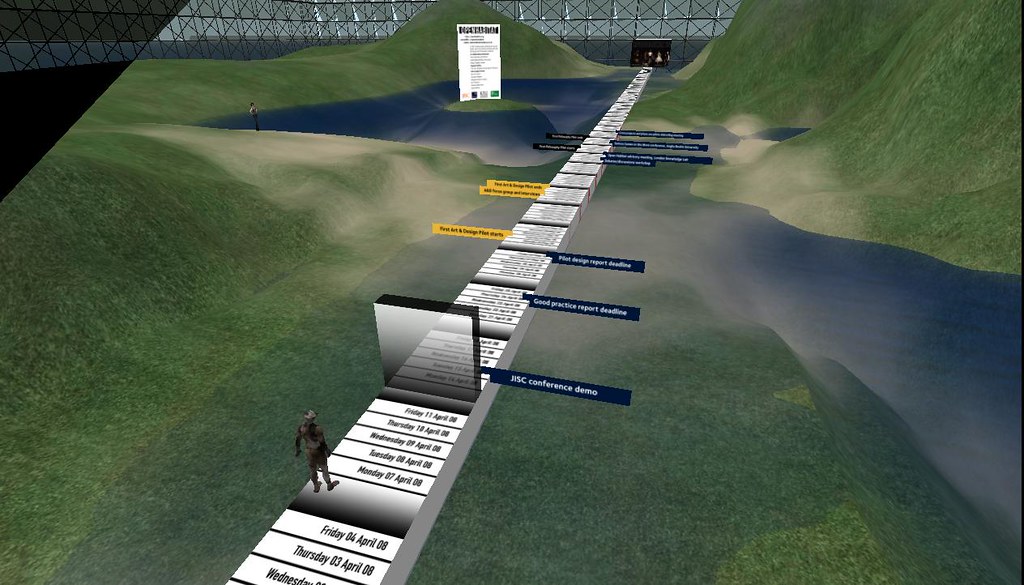Unlocking Success: Quick Tips for Land Development Project Timelines
Efficient project timelines are the backbone of successful land development endeavors. By adhering to well-structured timelines, you can accomplish key milestones, stay within budget, and maximize your return on investment.
In this article, we will share invaluable tips and tricks that will empower you to master land development project timelines, propelling your projects towards success.
From setting clear and measurable goals to collaborating with experienced professionals, and from developing robust project plans to streamlining permitting processes, we will explore a range of practical strategies to enhance your project timelines.
By implementing these tips, you can optimize efficiency, mitigate risks, and unlock the full potential of your land development projects.
The Importance of Efficient Project Timelines
Efficient project timelines are the backbone of successful land development endeavors. By adhering to well-structured timelines, you can accomplish key milestones, stay within budget, and maximize your return on investment. Let’s explore a variety of quick tips and tricks that will empower you to master land development project timelines.
Tips for Land Development Project Timelines
Quick Tip 1: Set Clear and Measurable Goals
Before diving headfirst into a land development project, it is crucial to establish clear and measurable goals. By defining your objectives, such as acquiring permits, completing infrastructure development, or selling developed plots, you provide your team with a shared vision. Each goal should be specific, measurable, attainable, relevant, and time-bound (SMART).
For instance, instead of setting a vague goal like “Complete infrastructure development,” a SMART goal would be “Complete road and utility installations within 12 months.” This clarity ensures everyone is on the same page and facilitates effective planning and execution.
Quick Tip 2: Conduct Comprehensive Due Diligence
Thorough due diligence is essential before investing in a land parcel for development. Engage professionals who can perform environmental assessments, survey the property boundaries, and conduct geotechnical studies.
Understanding the topography, soil conditions, potential environmental issues, and legal restrictions enables you to make informed decisions and avoid costly surprises down the line.
For instance, conducting an environmental impact assessment can identify any remediation requirements and help you plan for them proactively.
Quick Tip 3: Develop a Robust and Detailed Project Plan
A well-structured and detailed project plan is the cornerstone of a successful land development project. Break down the development process into phases, tasks, and sub-tasks. Assign responsibilities to your team members, ensuring everyone knows their roles and deadlines.
A project management tool, such as Asana or Trello, can help you visualize and track progress. Include realistic timelines, resource allocation, and contingency plans to handle unforeseen challenges. A comprehensive project plan keeps your team focused, minimizes delays, and enables effective coordination.
Quick Tip 4: Collaborate with Experienced Professionals
Building a team of experienced professionals is essential for successful land development projects. Engage architects, engineers, contractors, and legal advisors who specialize in land development.
Their expertise and industry knowledge are invaluable in navigating complex regulations, optimizing design and construction processes, and addressing unforeseen issues.
Collaborative efforts between knowledgeable professionals result in efficient decision-making, reduced risks, and accelerated project timelines.
Quick Tip 5: Communicate Effectively and Regularly
Clear and regular communication is vital for seamless project execution. Establish communication channels within your team and with external stakeholders, such as local authorities, investors, and buyers.
Schedule regular progress meetings and provide timely updates on milestones achieved, challenges encountered, and any necessary adjustments to the project timeline. Foster a culture of open communication where team members feel comfortable sharing their insights, concerns, and suggestions.
By maintaining transparency and addressing issues promptly, you can minimize misunderstandings, resolve conflicts, and keep the project on track.
Quick Tip 6: Streamline Permitting and Regulatory Processes
Efficiently navigating the permitting and regulatory processes is crucial to avoid unnecessary delays in your land development project. Familiarize yourself with the local regulations and engage in proactive communication with the relevant authorities. Seek
from experienced professionals who can assist in preparing and submitting accurate and complete documentation. Ensure that you understand the required permits, environmental impact assessments, zoning requirements, and any other regulatory obligations specific to your project.
By streamlining these processes and staying proactive, you can avoid costly setbacks and keep your project progressing smoothly.
The Benefits of Implementing These Tips and Tricks
Implementing these quick tips and tricks in your land development projects offers numerous benefits:
- Enhanced Efficiency: Clear goals, comprehensive planning, and effective communication streamline processes and minimize delays.
- Reduced Risks: Thorough due diligence and collaboration with experienced professionals help identify and mitigate potential risks and challenges.
- Cost Savings: Efficient timelines minimize holding costs, optimize resource allocation, and increase overall project profitability.
- Improved Reputation: Delivering projects on time establishes your credibility and fosters positive relationships with stakeholders.
- Competitive Edge: Efficient project timelines position you as a reliable and desirable partner for future land development opportunities.

Resources and Tools for Successful Implementation
To assist you in implementing these tips and tricks effectively, here are some valuable resources and tools:
- Project Management Software: Utilize tools like Asana, Trello, or Monday.com to create detailed project plans, assign tasks, track progress, and collaborate with your team.
- Professional Networks: Engage with industry associations, forums, and local networking events to connect with experienced professionals, gain insights, and expand your knowledge.
- Regulatory Guidance: Seek advice from legal professionals specializing in land development to navigate complex regulations, permitting processes, and compliance requirements.
- Training and Education: Attend workshops, webinars, and courses related to land development project management to enhance your skills and stay updated on industry best practices.
By utilizing these resources and tools, you can effectively implement the tips and tricks provided, optimizing your land development project timelines.
Unlocking Your Land Development Success
As you embark on your land development journey, remember that mastering project timelines is key to unlocking success.
By setting clear goals, conducting thorough due diligence, developing robust project plans, collaborating with experienced professionals, communicating effectively, and streamlining permitting processes, you pave the way for seamless execution and optimal outcomes.
Implement the tips and tricks shared in this article, leverage the provided resources and tools, and engage in open discussions with fellow experts in the field. Continuously refine your approach, learn from challenges, and adapt to changing circumstances.
By doing so, you will be well-equipped to navigate the complexities of land development project timelines and achieve remarkable results. Now, it’s your turn to take action. What steps will you implement today to enhance your land development project timelines? Share your thoughts and strategies with us!
Share Your Own Tips and Tricks
We would love to hear from you! Share your own tips and tricks for successful land development project timelines in the comments below. Your insights and experiences can provide valuable perspectives to our community of private lenders, real estate investors, and buyers.
